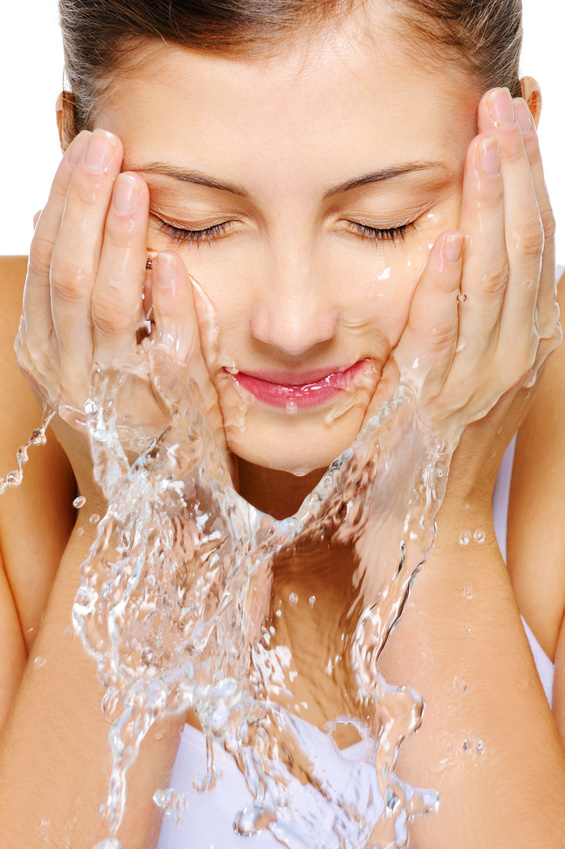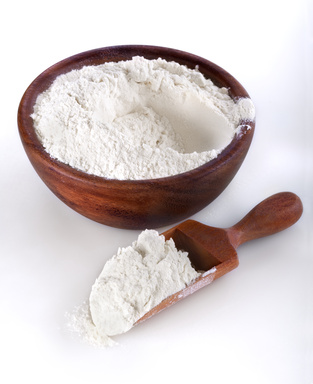
Marketing Verbiage For Beauty Industry Products
First and foremost in regard to keeping all skin healthy and beautiful, it starts with the simple regimen of keeping your face properly washed and cleansed each and everyday and never, ever sleep in your makeup, despite what some mineral makeup advertisers promote.
As a mineral makeup formulator and skincare provider, we realize the significance of terms like "hypoallergenic" and "noncomedogenic" when used to try and describe a benefit for many cosmetics and skincare products sold globally.
Many leading mineral makeup and skincare manufacturers use these terms in their day to day mantra and expose us to them by way of their advertising dollar. As smaller Indie companies crop up, they too are adopting these terms to promote a benefit.
Are these words a useful terminology? To a degree, since for most of us that shop for these products have a tendency to look for these on the label since we are cognizant to their meaning through advertising.
Are they an accurate way of describing mineral makeup or skincare products? Not really since everyone's skin is different and not a single manufacturer can absolutely guarantee that their product will not cause a problem for any one consumer.
Hypoallergenic....What Is It?
This descriptive was used first in a cosmetic campaign dating back to 1953, and was noted for a particular cosmetic or skincare product to cause fewer allergic reactions. But it doesn't mean that the product you may be relying on to keep your skin healthy based on this term will still not cause skin to have a reaction.
Noncomedogenic.....What Is It?
This descriptive is typically used again in cosmetics and skincare campaigns to describe a product as not blocking pores, also known as non-occlusive. Of course as many of us know, not blocking pores is a good thing since this is also what will help reduce acne on the skin.
Can Consumers Rely On This Terminology?
The terms "hypoallergenic" and "noncomedogenic" sound so scientific and it gives the illusion that products bearing this descriptive must have been tested. It seems true and definitive due to the use of this technical descriptive provided through years of subliminal marketing, so we have come to accept them as fact and to make us feel safe when purchasing that product.
Although there is much anecdotal evidence scattered throughout forums, message boards, and testimonials from clients, (we have had quite a few ourselves) which provides evidence that the terms hypoallergenic and noncomedogenic must be accurate. Yet there actually isn't any proven data in clinical trials, and has yet to be tested by the US Food and Drug Administration as to the validity of such terms.
However, it is a fact that prevention of occluded pores will definitely reduce acne, especially for those that are prone to acne, but not all forms of acne are caused by blocked pores. So "noncomedogenic" used as a descriptive helps identify a certain products unlikelihood to cause acne. Products making this claim, however, have caused many women to still have breakouts.
When dealing with the term "hypoallergenic", this term is so broad reaching, it really has no actual scientific meaning. There are countless beauty products being advertised using this buzz word. We have heard from many women that have used other mineral makeup and skincare products making this claim in their marketing campaign, only to have their skin go ballistic. Sometimes, they are convinced it is one ingredient only that causes their skin stress.
Are They Really Able To Identify The True Culprit In Their Skin Condition?
Not always! In fact, there are so many ingredients in mineral makeup and skincare products, it can be difficult to narrow it down to just a particular one. In most cases it ends up being a problem with ingedients when used in combination. This is due to when a typically benign ingredient is then mixed with another ingredient which then causes something similar to a chemical reaction causing a potential problem to the skin. Yet let an ingredient stand alone, and the skin may not have that same reaction. Unless you have access to an individual ingredient to patch test it, this is merely an educated guess as to the real allergen within the product.
Furthermore, hypoallergenic claims are attributed to certain ingredients which may cause skin to react with rashes, irritation, burning, itchiness, scaly patches and many other anomalies. Citric Acids (AHA) and Salicylic acid (BHA) can be very irritating for many women and should not be used, especially on those with rosacea. Bismuth Oxychloride is another major source of irritation and itchiness for women including exacerbating acne conditions. Certain Micas will also pose a problem for some. Retinol can cause burning and itching of the skin. These are only a few examples since the list of ingredients for potential issues will be endless.
How Will The Consumer Know The Best Mineral Makeup Or Skin Care Products To Buy?
We know these terms are very scientific sounding and they give the consumer the illusion the products are safe. Unless and until there is mandated testing and some kind of certification process offered through the FDA, allowing a manufacturer to show their clinical proof, these claims are anecdotal at best and they will continue to use them as a keen marketing tactic.
We assure you that these scientific sounding terms will not be used to describe our products since their meaning does not go unchallenged and they really do not have a scientific basis. Many in the medical community do not recognize these terms at all. Unless a dermatologist is promoting or selling a line of products also, he or she will not use these terms and will advise you to discontinue use if a certain product is giving you fits, such as a burning rash or itchy skin. What is interesting to note on the beauty product packaging, manufacturers give the same warning of discontinuing use if irritation occurs.
So you have to wonder if something is described as hypoallergenic, yet a disclaimer is also on the label, isn't this a contradiction of terms? This is when it should become obvious that we are individuals and we have different metabolisms, and that all mineral makeup or skincare products are not a one size fits all. The majority of them work, yet some won't for the few who use them. Trial and error is basically the only way to know for sure if your skin will love the products.
Since the FDA does not support this terminology, you shouldn't make a purchase based on these claims. Of course, ingredient lists go far to helping you identify a potential problem. Simply remember about ingredient combinations as well, and only by actually trying the product will you be able to know for sure.
Ignore Internet Rumor And Made Up Pseudo Scientific Terms
Rice Powder for instance, had been maligned significantly by beauty gurus and such, as to it causing acne and feeding bacteria on the face, when the opposite is true. When a claim is spread all over the internet by others not having an actual working knowledge of a certain ingredient, it is easy to make one the scapegoat of causing certain skin problems. Subliminally, they have been told to watch out for a certain ingredient when they have no actual data to support it, hence the consumer reacts with a negative.
The reality is, we have had huge positive responses in support of this ingredient and the holistic industry of Ayurvedic medicine has used this for centuries as a poultice in healing ulcerations of the skin and bleeding pimples.
Did you know that Rice Powder has been released from being included in the Material Safety Data Sheets (MSDS) by the National Institute of Standards and Technology, and the United States Department of Commerce due to it being completely non hazardous under normal use? This is actually the most (hypoallergenic) safest ingredient we could use in the beauty industry today, not excluding our dietary needs for avoiding allergic reactions.
With our line of mineral makeup products and ONATI Skin Care line, we cannot absolutely guarantee to be completely irritant free. We certainly know the minerals and botanicals we selected to use in our powders and skincare products to be extremely safe, and are FDA Regulated and Certified for cosmetic use. Yet we are aware there are going to be some women and men with extremely sensitive skin, and we hope they give us a try.
With our products we feel we can help improve the texture and condition of your skin and our formulations possess the lowest risk of irritants available on the market today. We have omitted the worse offenders that are known to cause ongoing problems for the skin in most instances.
We always provide a full ingredient list on every jar and bottle and they are displayed on our website for every product offered so you can shop with confidence in knowing exactly what you are getting in your skincare and mineral makeup regimen before you buy.

